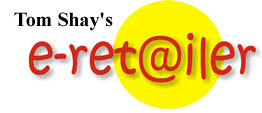 |
| |
 November 2016 November 2016
Volume 17 Issue 12
| Saying, "I'm sorry" and being Perry Mason
Multiple experiences this week have caused me to begin writing a new column for one of the trade magazines. With each of these interactions with businesses, there was a situation where the business disappointed. There were a couple of service businesses that did not show up to do work as they planned and a retailer who decided to just stand at the cash register instead of helping a customer and then finding the wrong price sticker was on an item. The situation with the retailer should have been an easy three minute experience and at ten minutes the clerk was still to figure out if the computer was wrong or if the price sticker was wrong.
With each situation, they started their comments with a, "I'm sorry", and then they began to defend their failure to take care of the customer. (Hence the comment in the title about Perry Mason who was a great television defense lawyer). The reality is that the customer does not care why you failed to take care of them. They just want their needs met.
Not trying to be mean, but the problems of the business or employee are not something that the customer needs, or wants, to hear about.
Why do businesses, and employees do this? "I'm sorry" is not going to undo the damage and it is as meaningless as, "Can I help you"?
A suggested solution is, "We made a mistake. I need to correct it immediately for you".
There could also be a response of, "What can I do to make this right for you"?
With this second solution, it is important to note that research shows that when this question is asked, the customer is most frequently going to ask for less than what the business was going to offer.
|
|
A Master Salesman - Article of the Month
November's article of the month has a solid tie into the previous comments. It is the story of a man who owned a music store; it is the story of a shopping experience with him and one of his employees. They all know how to engage customers, make them feel welcome, and gets them to want to come back.
We have not had an issue with poor service in this business, but I am sure they would be as equally skilled in solving a problem as they are in taking care of their customers.
|
|
Listen to the dinosaur - Book of the Month
The guest for the September e-retailer conversation was Dave Fellman. We talked with him about a book he had written, The Small Business Book. However, during the pre-show discussion, Dave mentioned another book he had written. The title, "Listen to the dinosaur", came from a young individual who had heard Dave speak and afterwards told Dave, "You are a dinosaur."
Dave responded that the young person would do well to listen to an old dinosaur and hence, the title.
This book is a great read. Follow the link below for a long list of other great book suggestions.
|
|
A more logical financial statement
"If we were to lower our price, we could sell a lot more". is a frequently heard comment. While in some cases that might be true, there are two questions to be asked.
"With the increase in the number of the item being sold, will we make the same, or more, gross sales dollars?"
"Will we make the same, or more, gross profit dollars?"
This calculator can help you make the determination about the price change.
|
|
The reason why - Staff Incentive for Your Business
So, why is this business here? More than to just sell a product or provide a service; why does the business exist? This is a good question.
Let's take a landscape business as an example. Does it exist to cut the grass, trim the hedges and prune the trees so that you and the staff can have a roof over your head and eat? Or does it exist so that your customers can home to a place where they can relax and feel comfortable? Does your business bring truth to the expression, "Your home is your castle"?
Does your business sell clothes? Or do you take care of individuals who are fashion oriented and want to feel comfortable in what they are wearing?
As an employee, in each of these examples, which business do you want to work in? This is giving your employees a mission; a reason to exist; and allowing them to be a part of something bigger. In itself, this is a staff incentive.
We want to recognize A Carrot A Day by Adrian Gostick and Chester Elton, whose book provides the basis for each month's incentive idea.
|
|
|
|
|
 |
PROFITS PLUS, FOUNDER OF... 
©1998-2025 Profits Plus Solutions, Inc.
Tom Shay
PO Box 128
Dardanelle, AR 72834
(727)823-7205 |
|